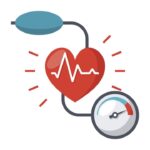Disc herniation, a common ailment among the elderly, is increasingly affecting younger individuals. Untreated, it can lead to significant difficulties in daily life and potentially severe complications such as urinary disorders, muscle atrophy, and even paralysis.
1. Disc Herniation in Young Individuals
1.1. What is Disc Herniation?
Disc herniation occurs when the intervertebral disc slips out of its normal position, pressing on the spinal canal or nerve roots, resulting in pain and discomfort.
Any segment of the spine can be affected, but herniation in the lumbar and cervical spine is most common due to daily activities.

Any segment of the spine can experience disc herniation
1.2. Causes of Herniated Disc in Young Individuals
Trauma, occupational factors, lack of physical activity, poor diet, and unhealthy lifestyle habits contribute to disk herniation in young people.

Improper lifting and poor posture that involve the spine can put you at risk of a herniated disc.
1.3. Symptoms of Disc Herniation in Young Individuals
The symptoms of herniated disc in young individuals vary across different stages of the condition. However, these symptoms are quite similar to those experienced by older adults.
Early Stage: Initially, the disc starts to deform and lose elasticity. At this point, individuals may experience a mild, dull ache and stiffness in the lumbar or cervical region. As the disc protrudes further and compresses nerve roots, intermittent, dull pain may be felt.
Progression Stage: With time, the outer layer of the disc continues to weaken, leading to tears and ruptures. As the disc protrudes more, it presses more severely on nerve roots, causing persistent pain and discomfort.
Advanced Stage: In severe cases, herniated disc becomes more pronounced, exerting significant pressure on surrounding structures. Intense and prolonged bouts of pain may radiate from the affected area to other regions like the shoulders, arms, or hands. Additionally, individuals may experience numbness or tingling sensations in their fingers or toes. In the most severe instances, disc herniation can result in loss of motor function, urinary or fecal incontinence, muscle atrophy, and even paralysis.
Recognizing these symptoms early is crucial for timely intervention and management of disc herniation in young individuals.
2. Potential Complications of Untreated Disc Herniation
Ignoring symptoms can lead to complications such as urinary dysfunction, nerve damage, paralysis, muscle atrophy, sensory disorders, and chronic pain syndromes.
3. Prevention Strategies
Several preventive measures can be taken:
– Adequate nutrition and calcium intake for bone health.
– Regular exercise to improve flexibility and strength.
– Maintaining ideal body weight.
– Proper posture and ergonomics.
– Avoiding heavy lifting and excessive strain on the spine.
– Balanced diet and avoiding tobacco and alcohol.
– Regular health check-ups for early detection and intervention.

You need to pay attention to taking measures to help protect your musculoskeletal system
In conclusion, disc herniation in young individuals is a growing concern. Prompt treatment and preventive measures are crucial for managing the condition and avoiding potential complications. For further guidance, contact TCI Thu Cuc Healthcare System for expert advice and assistance.








